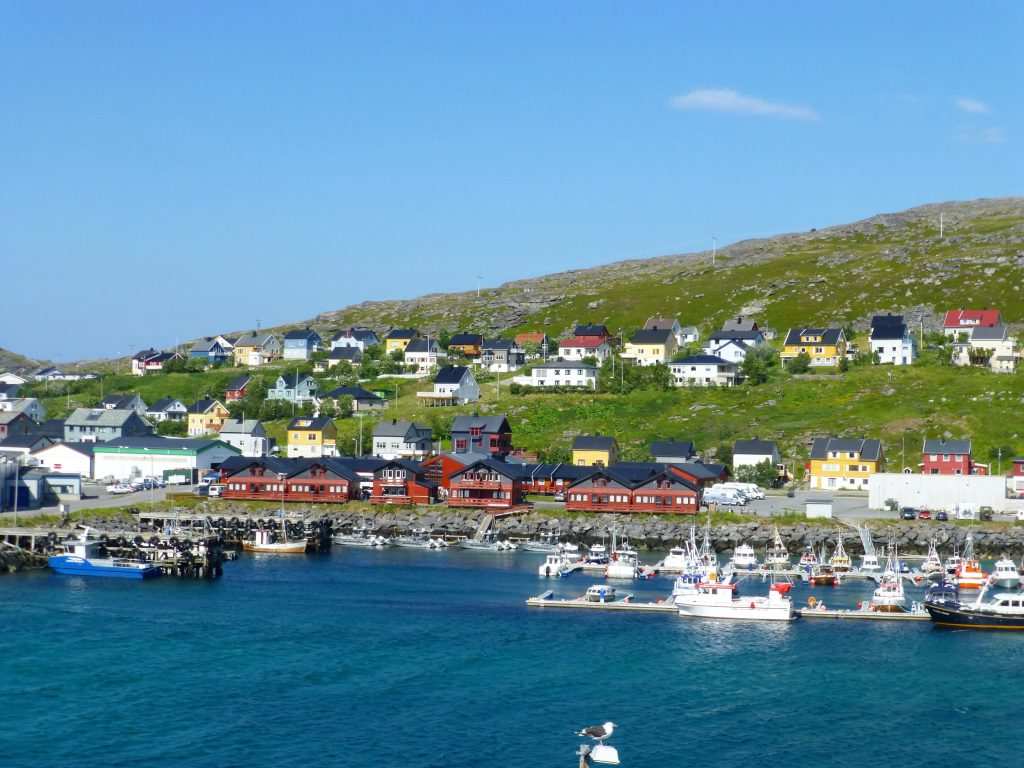Svalbard. Credit: Unsplash/CC0 Public Domain
Tourists acting as citizen scientists have helped a research team detect microplastics on remote Arctic beaches. The global scale of plastic production means that these tiny fragments of plastic are now ubiquitous, and scientists fear that ocean currents will cause plastic to accumulate in the Arctic, damaging ecosystems. But our knowledge of the scale and type of plastic pollution in the Arctic is incomplete. Researchers recruited holidaymakers to carry out sample collection during cruises, hoping to fill in some of the gaps in their knowledge.
“Plastic pollution is now ubiquitous. It is found on land and in soil and most rivers of the world,” said Dr. Bruno Walther of the Alfred Wegener Institute, Helmholtz Center for Polar and Marine Research, author of the study published in Frontiers in Environmental Science. “It is even found in the polar oceans and the deepest ocean trenches.”
Plastic gets everywhere
The Svalbard archipelago is Europe’s northernmost landmass—beautiful, remote, and at risk from microplastics transported by ocean currents. Four tourist cruises visiting Svalbard in 2016, 2017, 2021 and 2022 collected sediment samples: all cruises except 2022 also surveyed macroplastic debris (between 2.5 and 10cm in size) for a different study. Initially, single samples were taken from beaches using simple metal tools and sent to the scientists with metadata and photographs to record sampling locations. Later this was expanded to cover whole beaches with sampling grids.
“Citizen science is possible even in remote Arctic beaches,” said Walther. “This helps to cut down on traveling time, CO2 emissions and costs for scientists, and it helps to engage citizens in a global environmental issue.”
These samples were dried out, weighed, and measured. Each sample was filtered to capture particles 1mm or larger in size. This boundary was selected on the basis that smaller particles don’t easily become airborne, an assumption that the scientists tested by keeping a bowl of purified water next to their worksurface and filtering it to search for microplastics after their analysis was complete: no microplastics had drifted from the laboratory’s air into the water.
To avoid plastic contamination, the scientists ran an air purifier, wore cotton lab coats, avoided synthetic clothing, and covered samples with aluminum lids. Identified plastic particles were examined under a microscope and then analyzed using spectroscopy.
Warning signs
The scientists found that microplastics of the size they were searching for were not widespread but were very concentrated: the estimated overall level of plastic pollution was comparable to areas formerly believed to be much more polluted than Arctic beaches. Two specific sources of plastic pollution were identified in their samples: polypropylene fibers that likely formed part of a fishing net, and polyester-epoxide particles that probably came from a ship’s color coating or equipment.
“Plastic debris from fisheries is the most direct point of entry to the marine realm, and is often particularly important in remote areas,” said author Dr. Melanie Bergmann of the Alfred Wegener Institute. “There is an active fishing fleet operating in the waters surrounding Svalbard but also in the North Sea and north Atlantic. Some of the waste that they emit drifts to the beaches of Svalbard.”
The netting appeared to have fragmented very quickly due to the conditions on the beach: repeated freeze cycles, high humidity from fog, and up to 24 hours of sunlight a day in summer. If this rapid fragmentation occurs at other locations, it could introduce tiny, elusive microplastics into the environment very quickly.
“We still need more sampling in the Arctic, in more places and in more regular time intervals to monitor the situation,” said Walther.
“It should be noted that we only analyzed microplastics particles larger than 1mm,” cautioned Bergmann. “This was because of the citizen science approach and to avoid potential airborne contamination by small particles. But our previous studies on Arctic water, ice, and sediment samples have shown that more than 80% of the particles were much smaller. So, we probably would have found more particles, if we had looked for smaller particles, too.”
More information: Citizen scientists reveal small but concentrated amounts of fragmented microplastic on Arctic beaches, Frontiers in Environmental Science (2023). DOI: 10.3389/fenvs.2023.1210019
Citation: Tourists help scientists reveal microplastic pollution on remote Arctic beaches (2023, July 21) retrieved 27 July 2023 from https://phys.org/news/2023-07-tourists-scientists-reveal-microplastic-pollution.html
This document is subject to copyright. Apart from any fair dealing for the purpose of private study or research, no part may be reproduced without the written permission. The content is provided for information purposes only.

